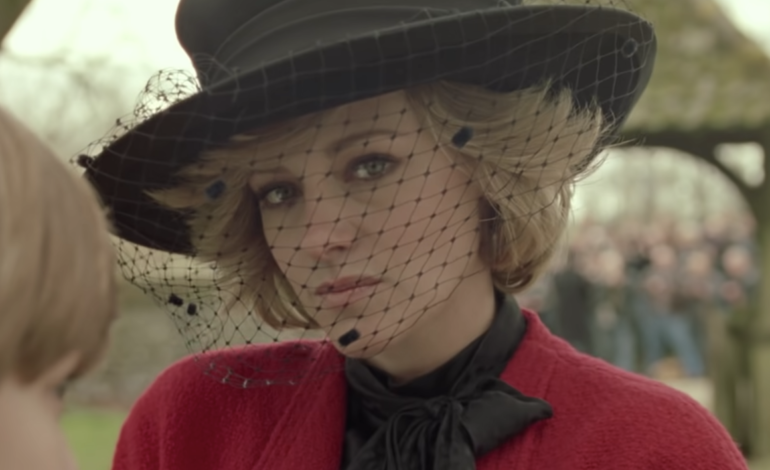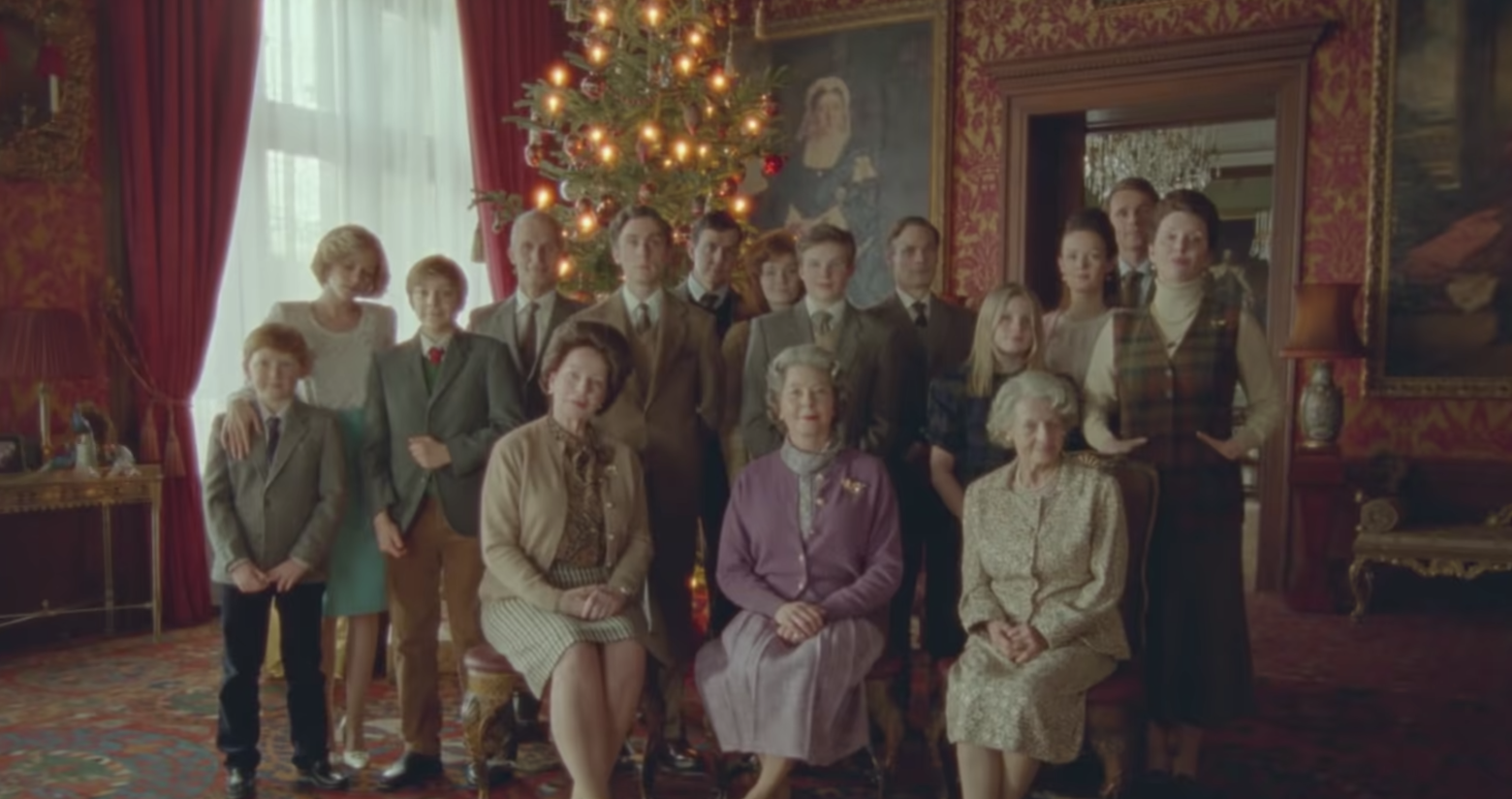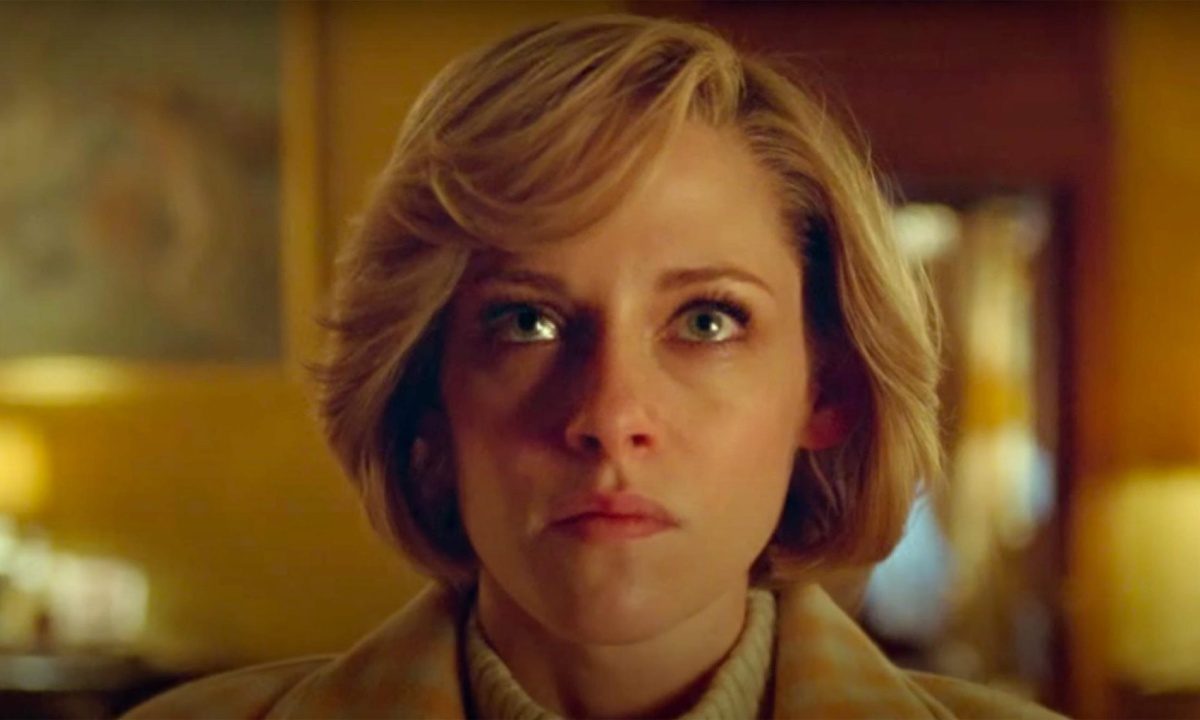

From the start Spencer feels like a fish out of water story. The film releases itself and feels the most free when it focuses on long patches of grass and hillsides of the English country. As the film goes on, it becomes more and more claustrophobic. While it is merely based on a true story, Spencer feels like it is a tall tale or a fable about Princess Diana more-so than a traditional biopic. Though more importantly, it is a larger story about escape as well as self identity.
Spencer takes place over three days during a royal Christmas holiday in 1992, and follows Princess Diana, played by Kristen Stewart, slowly realizing she must leave her marriage with Prince Charles, played by Jack Farthing. Her only solace over this weekend comes in the form of her children(Freddie Spry and Jack Nielen) as well as her friend Maggie(Sally Hawkins). The royal family, which includes the Queen(Stella Gonet), Prince Philip(Richard Sammel), and Major Alistar Gregory(Timothy Spall), are Diana’s main foils throughout the fable.
Though all of this seems rather grand and complicated, the story, rightfully so, solely focuses on Diana. The film is directed by Jackie helmer Pablo Larraín and is written by Locke and Peaky Blinders writer Steven Knight. The film is quite simple on the surface, but the cinematography, direction, and lead performance all work in harmony to form something incredibly human and special.


Right from the start, the cinematography, by director of photography Claire Mathon, feels gigantic. The shots of the royal location help to show just how far this family is from the working class. To contrast, the first image of Diana is her literally lost in the countryside driving. This contrast is seen throughout the film and is masterfully balanced by Larraín and Mathon. This composition creates a distinct juxtaposition of Diana to the rest of the royal family. Overall, it lays the groundwork for Diana’s arc from the inception of the film.
The direction from Larraín is also very strong. Coming off of one of his last films, Jackie, this would seem to be somewhat similar to that story. An incredibly recognizable figure deals with a huge tragedy and moment in their life. While Jackie Kennedy and Princess Diana both go through a lot of trauma, there is a clear distinction between the two icons, and while on the surface it could seem the same, the Stewart led film itself never once felt like a retread of the Natalie Portman led Best Picture nominee.


Larraín also moves the film well, while the script is not bad at all, there is a certain lack of action in the film. Not too much happens in the film from a plot perspective. Though Larraín does a fantastic job of balancing the pace of it. There was never a dull moment, and what works the most is that it all revolves around Diana’s focus and mind throughout the duration of the film.
An example of a scene that is paced well is a scene in which Diana and Charles speak to each other over a pool table. The blocking of the actors as well as the camera creates a clear barrier between the two characters. It is not a physical, but an emotional barrier. There never needs to be a huge scene between the former lovers, the end of their relationship is just felt. That feeling is thanks to the direction of Larraín. The camera slowly comes in on both actors and builds a quiet unease for the viewer. It feels as if the relationship between Diana and Charles is understood simply with the camera work and the sound design. The Chilean director does an impressive job of showing humanity throughout his filmography. He does a great job with actors, especially with the best part of Spencer.


Easily the best part of the film is Kristen Stewart. The former Twilight actor gives a career performance that is sure to garner awards buzz. Simply put Stewart is Diana. At least this interpretation of the character of Diana. No one can perfectly encapsulate any other person, but Stewart does a great job with this character. She is longing, quietly funny, and most importantly human. She gives so much humanity to a character that is slowly breaking down throughout the film. It is not a simple performance at all. It is difficult to bring a humanity to any character performed, but Stewart does this with ease. The casting is a match made in heaven.
One scene that particularly sticks out is a dinner sequence where Diana cannot stand the meal. It’s not so much about the food, but about her own box that she is in. Everyone is gathered around the dinner table. Everyone feels like a hollow shell, while Diana just wants to be the antithesis of that: a human. This sequence perfectly directed and acted creates a distinct sense of claustrophobia for Diana as well as the audience. It places her in a box that is the royal family.
There are a plethora of more scenes in Spencer that showcase this humanity for Stewart. Without spoiling anything, Stewart and Diana merge into one to form an enthralling watch that does not need much else. This is hands down Stewart’s best performance and it is exciting to see what she does next.
Verdict: 4 out of 5
This is a shorter review than typical, but there is not much else to say. Spencer is a triumph in finding solace in leaving the constraints of a box. It is a story that is important and is not just about a royal family member or the royal family. It is about someone that is uncomfortable in their own skin and must find something in them to not feel that way anymore.
It is a simple story, but it is also a difficult story to get right. Stories like these are not as simple as they seem. It is far harder to make a film than people give it credit for. Larraín, Knight, and Stewart help to carry this film into something really special.
This was the first time in two years where a film has spoken about identity in such a unique, surprising, and human way. Spencer is a must see.
